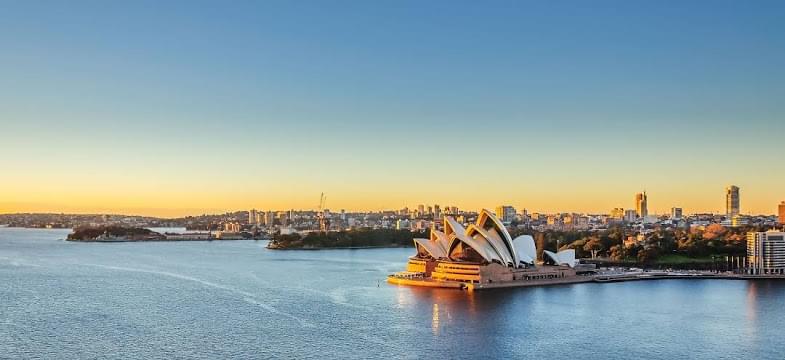
Australia
🇦🇺
Last updated:
Last updated:
The travel advice is Exercise normal safety precautions to Australia. Australia is Unknown restrictions for travel. Get travel ban, restrictions alerts and advice before travelling to Australia. Australia is part of Oceania with main city at
Canberra. Its Developed country with a
population of 24M people. The main currency is Australian Dollar. The languages
spoken are English.
👍 Developed 👨👩👦👦 24M people
🛡️ Travel safety for Australia
No data present
🚨 Travel Advice for Australia
Unknown restrictions
for travel
- Passengers are not allowed to enter Australia.
- This does not apply to:
- permanent residents of Australia and their immediate family members;
- nationals of New Zealand residing in Australia and their immediate family members;
- passengers arriving from New Zealand if they in the past 14 days have been in New Zealand;
- passengers who have a visa and have been granted an exemption before departure; details can be found at https://travel-exemptions.homeaffairs.gov.au/tep .
- Passengers could be subject to presenting a "Travel Declaration" form upon arrival or when transiting through Australia. The form can be obtained at https://covid19.homeaffairs.gov.au/australia-travel-declaration or upon arrival.
Passengers could be subject to quarantine for 14 days at the first point of entry. Details can be found at https://covid19.homeaffairs.gov.au/new-zealand-safe-travel-zone .
Airline crew are subject to self-isolation until their next flight.
Passengers transiting through Australia for 8 to 72 hours are subject to quarantine until their next flight.
Passengers entering or transiting through Australia must have a medical certificate with a negative Coronavirus (COVID-19) PCR test result. The test must have been taken at most 72 hours before departure from the first embarkation point. More details can be found at https://www.health.gov.au/news/health-alerts/novel-coronavirus-2019-ncov-health-alert/coronavirus-covid-19-restrictions/coronavirus-covid-19-advice-for-international-travellers/coronavirus-covid-19-faqs-international-travellers-to-australia .
- Passengers could be subject to presenting a "Travel Declaration" form upon arrival or when transiting through Australia. The form can be obtained at https://covid19.homeaffairs.gov.au/australia-travel-declaration or upon arrival.
- This does not apply to:
- passengers arriving from Kiribati, New Zealand, Niue, Samoa, Solomon Isl., Tokelau, Tonga, Tuvalu or Vanuatu;
- passengers with a medical certificate with a positive Coronavirus (COVID-19) PCR test result, and a medical discharge issued at least 4 weeks before departure which specifies that:
- at least 14 days have passed since they were infected with Coronavirus (COVID-19); and
- 72 hours have passed since recovery of fever and respiratory symptoms; and
- passengers have recovered from Coronavirus (COVID-19) and are not contagious.
Travel restriction details for Australia
🚫
Destination Unknown
🛬
Return Unknown
🏖️
Unknown
🍽️
Restaurants & bars Open with restrictions
🛍️
Open shopping
🚌
Operational transport
📅
events Allowed
travel details
It's important to consider getting travel medical insurance to ensure you're covered in case of unexpected medical emergencies.
For just $42, you can get coverage for 4 weeks, providing peace of mind and financial protection while you're away from home.
Fly to
✈️ best flight deals
from1000+providers
from1000+providers
Stay in
🛏️ hottest hotel deals
upto20%OFF
upto20%OFF
Insurance
🏥 travel insurance cover
$1.45 / day
$1.45 / day
Money
💳 access money easily
$0ATM fees
$0ATM fees
Drive in
🚙 best car rentals
$0cancellation
$0cancellation
Useful Information
Find other useful infromation when you are travelling to other country like visa details, embasssies, customs, health regulations and so on.